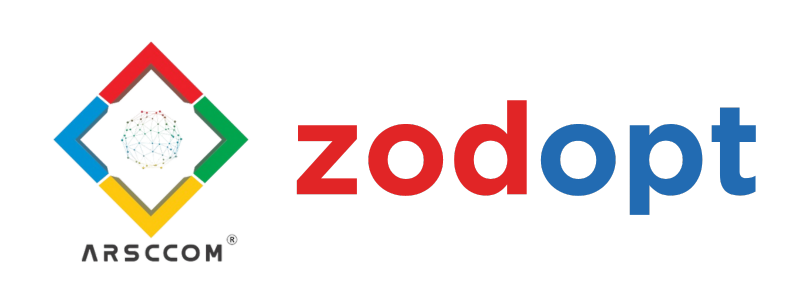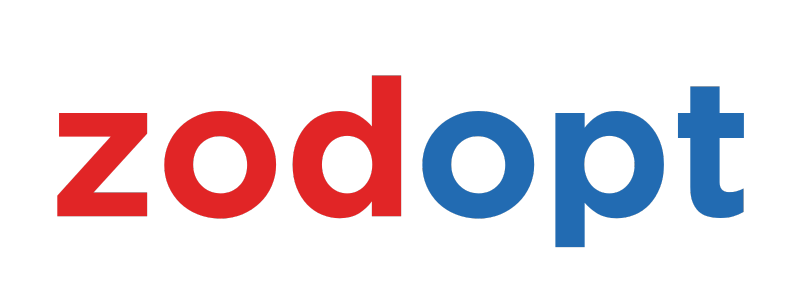- About Us
About ZODOPT
Explore our path, purpose, and dedication to pioneering advancements.

careers
Become a part of our team and play a role in molding the future of software.
contact
We're eager to hear from you.
services
Discover our specialized services crafted to propel your success.

zoho premium partner
Unleash your business potential with a Zoho expert.
- Solutions

Custom Solutions
Customizing technology to fulfill specific business requirements.

Customer Service & Support
Enhancing experiences through timely and personalized services.

Collaboration
Immediate connectivity via streamlined communication.

Data Analytics
Guiding decisions with advanced data insights.

Finance Automation
Optimizing financial processes for precise and efficient management.

HR & Recruitment
Improving talent acquisition and HR management.

Marketing Automation
Maximizing effectiveness through automated, data-informed campaigns.

Operations & Project Management
Improving efficiency and results through integrated solutions.

Sales Automation
Increasing sales via automated workflows and improved conversion rates.
- Resources
- 17th Cross Malleshwaram, Karnataka, Bangalore - 560003
- sales@zodopt.com
- +91 8647878785
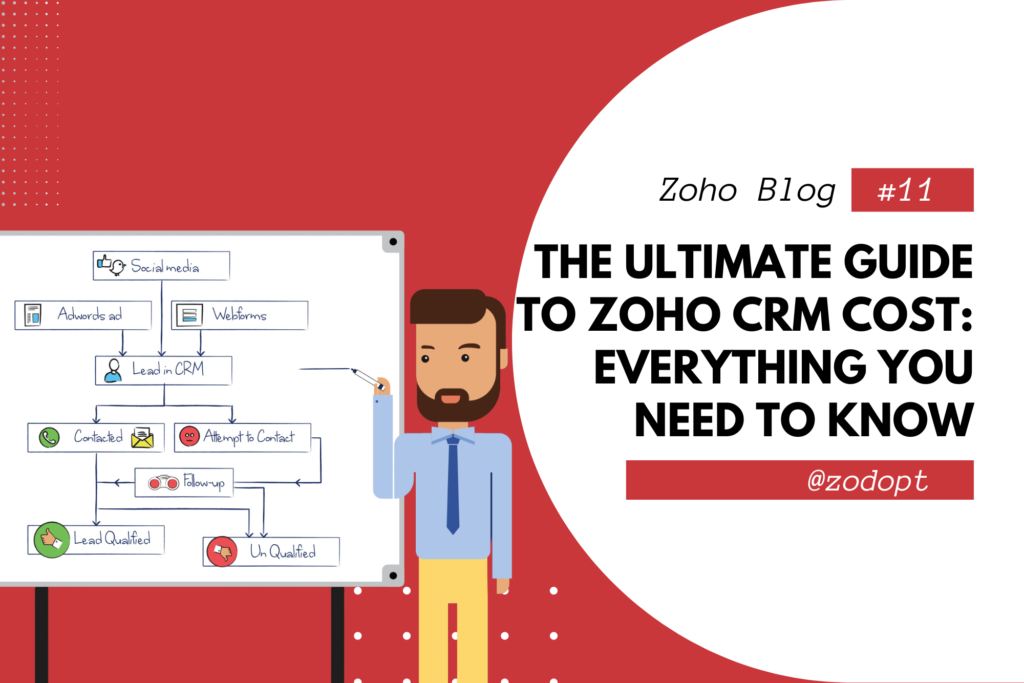
Introduction
In the realm of customer relationship management (CRM) software, Zoho CRM stands tall as a robust and versatile solution designed to streamline business processes and enhance customer engagement. However, before diving headfirst into integrating this powerful tool into your organization, it’s crucial to understand the various costs associated with Zoho CRM implementation. In this comprehensive guide, we’ll dissect the intricacies of Zoho CRM cost structure, shedding light on pricing plans, key features, and factors influencing expenditure.
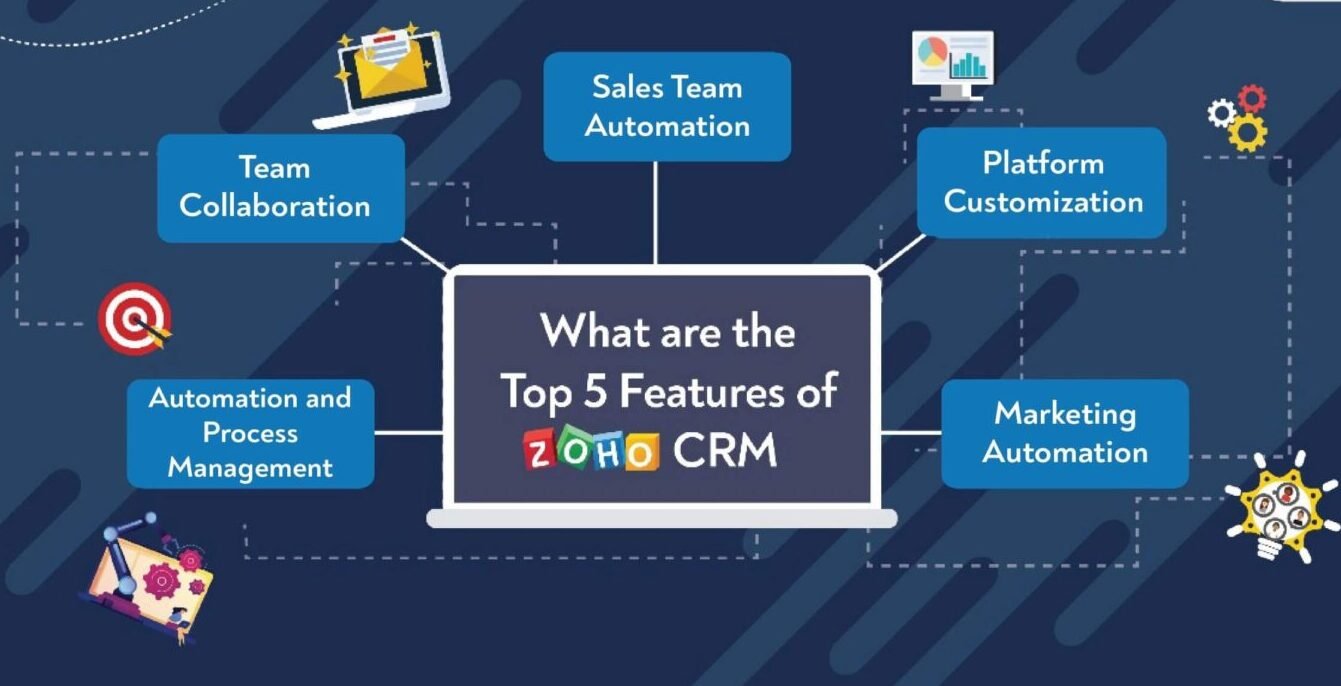
Understanding Zoho CRM Pricing Plans
Zoho CRM offers a range of pricing plans tailored to suit the diverse needs and budgets of businesses of all sizes. These plans include:
1. Free Plan:
Ideal for startups and small businesses dipping their toes into CRM waters, the Free Plan offers basic features such as lead management, contact management, and workflow automation at no cost. It’s a perfect starting point for those exploring CRM solutions without committing to a financial investment.
2. Standard Plan:
The Standard Plan caters to growing businesses requiring more advanced CRM functionalities. Priced at a competitive rate, this plan includes features like sales forecasting, email integration, and custom dashboards, empowering teams to optimize sales processes and drive productivity.
3. Professional Plan:
Geared towards mid-sized enterprises and larger organizations, the Professional Plan offers an extensive suite of CRM tools, including advanced analytics, sales signals, and territory management. With enhanced customization options and scalability, this plan enables businesses to fine-tune their CRM strategy to meet evolving needs and objectives.
4. Enterprise Plan:
Designed for large enterprises and businesses with complex CRM requirements, the Enterprise Plan delivers unparalleled flexibility and scalability. From AI-powered sales assistant to multi-user portals and dedicated account management, this plan empowers organizations to orchestrate sophisticated CRM workflows and achieve maximum efficiency.
5. Ultimate Plan:
At the zenith of Zoho CRM offerings lies the Ultimate Plan, a comprehensive solution equipped with every conceivable feature and functionality. With premium support, advanced analytics, and extensive integration capabilities, this plan caters to businesses seeking a holistic CRM solution to drive growth and innovation.
READ MORE: How Zoho CRM can Revolutionize your Business
Factors Influencing Zoho CRM Cost
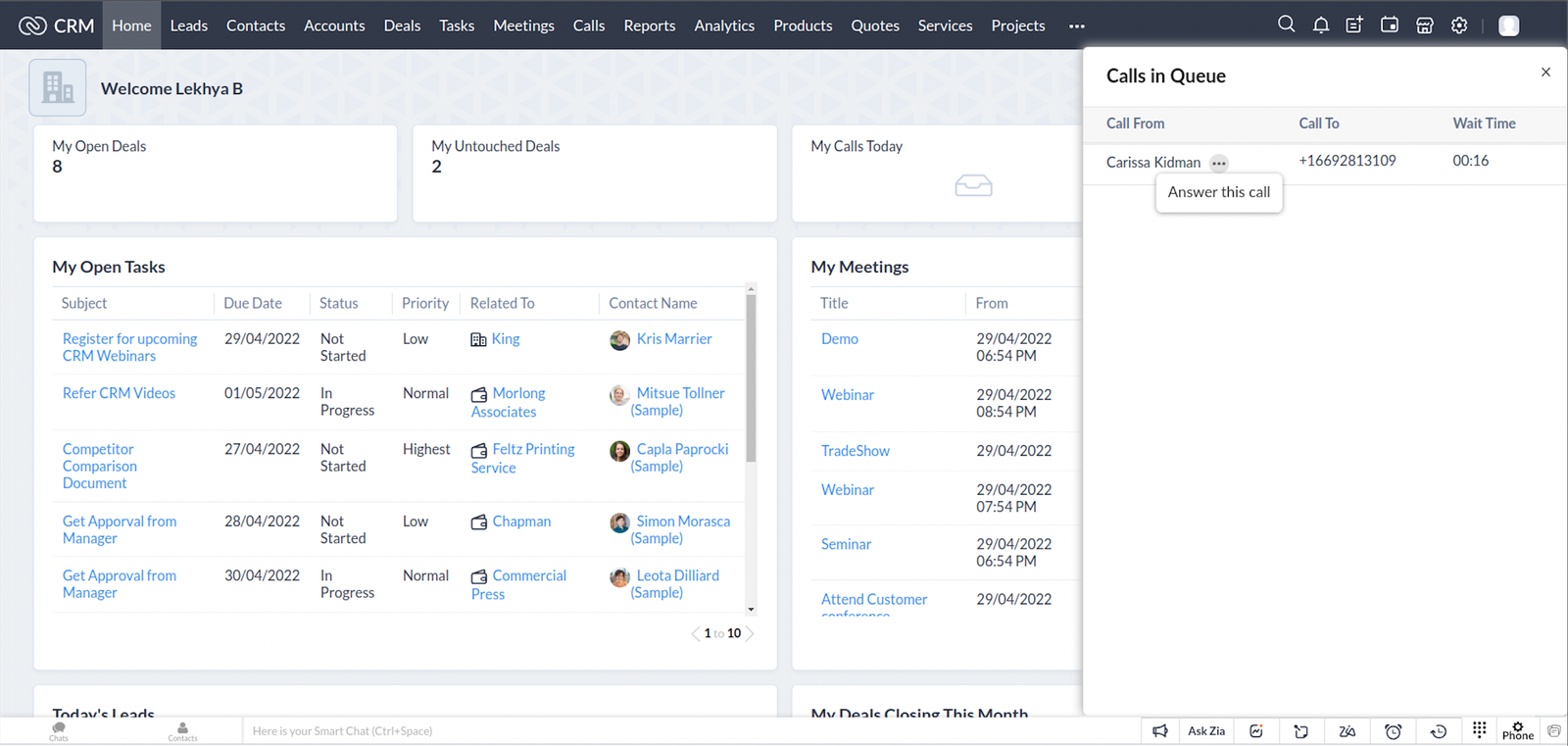
While Zoho CRM pricing plans provide a clear outline of costs, several factors can influence the overall expenditure:
1. Number of Users:
The number of users accessing the CRM platform directly impacts the cost, as most pricing plans operate on a per-user basis. Scaling up or down the user count can have a significant bearing on the total expenditure.
2. Customization Requirements:
Businesses with specific customization needs may incur additional costs for tailor-made solutions. Whether it’s custom modules, workflow automations, or integration with third-party apps, customization efforts can contribute to the overall Zoho CRM cost.
3. Add-Ons and Integrations:
Zoho CRM offers a plethora of add-ons and integrations to enhance functionality and extend capabilities. While these integrations can optimize business processes, they may entail supplementary costs depending on the chosen add-ons and their pricing models.
4. Training and Support:
Investing in employee training and ongoing support services is essential to maximize the ROI of Zoho CRM implementation. Businesses opting for personalized training sessions or premium support packages may need to allocate additional funds towards these services.
READ MORE: Create AI Generated emails in Zoho CRM with Chatgpt
Conclusion
In conclusion, grasping the nuances of Zoho CRM cost is pivotal for making informed decisions and maximizing the value of CRM investment. By selecting the appropriate pricing plan, considering customization needs, and factoring in additional expenses, businesses can leverage Zoho CRM to propel growth, foster customer relationships, and drive sustainable success in the competitive landscape.
If you are looking for Zoho CRM implementation or support contact us today.
